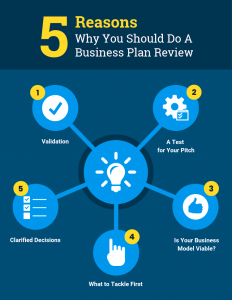Writing A Successful Small Business Plan That Works

I’m going to start this by saying, there are no shortcuts in business, and everything you do needs to be calculated and precise. If you have saved money, have investors, or have acquired a small business loan, then you know that no matter the funding source, you need to make this work. Many new business owners have hesitations about jumping in and getting their feet wet, you can’t have hesitation, you must have complete confidence and execute your business plan fast and efficiently to survive the cut-throat world of business. If you are ready to begin this journey, then here are some helpful tips that every small business owner should consider when they start. Below is a business plan template from the SBA.
Downloadable Business Plan Template: Download
How To Start Writing Your Business Plan
It’s true, the addition of laptops and the internet means that nearly anybody can start a business from the comfort of their own home. However, there’s a difference between having fun to make a little money and launching a business. Often, people will tell you that the secret to success is a ‘business plan’…but what does this mean? We have a short guide today outlining the main aspects of a business plan. This guide will walk you through the fundamental aspects of writing this plan, and following through with your outline. Once the plan is on paper, you must take action and follow through.
Key Points To Consider When Writing Your Business Plan
• Summary and Description
 Firstly, we recommend starting the document with a brief summary of the whole plan. Once you have written the rest of the plan, go right back to the beginning and write a small summary. Covering around one page, you can include your mission, some basic details such as the launch date and your aim in the market. If you have industry experience and a deep knowledge of the subject, make note of that as well, this will be beneficial when pitching this to investors or for crowd funding.
Firstly, we recommend starting the document with a brief summary of the whole plan. Once you have written the rest of the plan, go right back to the beginning and write a small summary. Covering around one page, you can include your mission, some basic details such as the launch date and your aim in the market. If you have industry experience and a deep knowledge of the subject, make note of that as well, this will be beneficial when pitching this to investors or for crowd funding.
In the company description that follows, you then go into more detail about your products/services, your customer base, and what differentiates you from the competition. When pushing for investment later down the line, this last section is especially important because investors need to know what makes you unique. Part of your USP (unique selling proposition) should include any previous experience you have had that might qualify you as an authority in our niche. If your approach to business is unique, or your work ethic is uncompromising, then these are things an investor will want to know, be sure to share these unique USP’s within your business plan.
• Market and Competitive Analysis
Unfortunately, many small business owners show their naivety by spending hours and hours developing and creating a product without actually completing an assessment of the existing market. Just because you think it’s a great idea, doesn’t mean others will. it’s interesting to consider, but many people on the inside of a business have very little understand to how people on the outside view their products and services. Understanding how your offer is perceived by your audience will be useful prior to launching your business. If it’s not well received, you may want to consider modifying your offer, or trying something completely different. This isn’t meant to discourage you, it’s meant to encourage you.
- Who is your competition?
- What do they do?
- Will you have a clean entry into the market?
- Is it a saturated market?
- How will you entice customers away from others?
As well as specific information on the competition, you can also look into the size of the market, change in demand over a period of time, purchasing trends, and the needs of the average consumer. The more research you do here, the better prepared you will be for the challenges that come your way. You can also use tools like Google keyword planner, Google trends, and other web based aggregators to get a feel for the online market.
• Company Operation
Now you’ve covered the market, what about your company? Important details include the organizational structure, the management team, ownership details, and employees. Even if you’re a one-person band, this is still important for readers. Make sure your company is legally setup to operate in your local market. Operational licenses may be necessary depending on the type of services you will be offering. Permits, and other legal documentation may be required also. Setting exceptions for resources needed, and those currently available will also be of value to a potential investor. Some operational resources may include accounting solutions, technical support, IT services, internet plans, and other operational expenses that the business may encounter on a monthly basis.
Operational Resources For Small Businesses:
• Sales/Marketing
It’s one thing spotting a gap in the market, it’s another entirely actually reaching out to these consumers successfully. Therefore, this section needs to explain your marketing and sales strategies. Especially in the market today, a good lead generation and conversion strategy can really set a business apart. Gone are the days where print media, radio, and television were the primary platforms for advertising. Today, the internet has grown into an advertising machine, reaching millions, if not billions of consumer daily. Understanding how internet marketing works will be important as you start your business, but in time, you will eventually hire an internal marketing expert, or a digital marketing agency to handle this for you.
Five Digital Marketing Concepts To Consider For Your Business
- Search Engine Optimization
- Social Media
- PPC / Display and Retargeting
- Email Campaigns
- Blogging
While that list is very general, those are key factors all small business owners should consider when creating a business plan that will be effective for the long run.
• Financial Details
Finally, you can bring the document to a close with information regarding finances. What are your financial predictions? How do you expect cash flow to go during the opening period of your business? What assets and liabilities does the business have? Again, detail is key here because it could be the difference between getting an investor or bank loan and failing. They say the devil is in the details, and when it comes to investors putting up capital for a small business loan, this holds very true.
How To Write A Business Plan – Video – From Gillian Perkins
Tips for Writing a Business Plan
What about actually writing the plan and formatting it correctly? Here are some tips for you:
- Always get objective feedback from those without an emotional investment in the business
- Seek professional help if you don’t feel comfortable producing the plan yourself
- Remember all the details that the readers need to know and remove any excess explanations
- Put the content through spelling and grammar checkers to remove mistakes
- Offer an appendix with financial forecasts, resumes, market research data, etc
- Be realistic (don’t feel the need to exaggerate or lie)
- Add a contents page and a cover for professionalism
- Try to read the document through the eyes of a bank, investor, or any other reader
- Explain the risks and challenges to show you understand
With this last tip, showing that you understand challenges and have a plan to overcome them is always better than ignoring them completely. Good luck!
